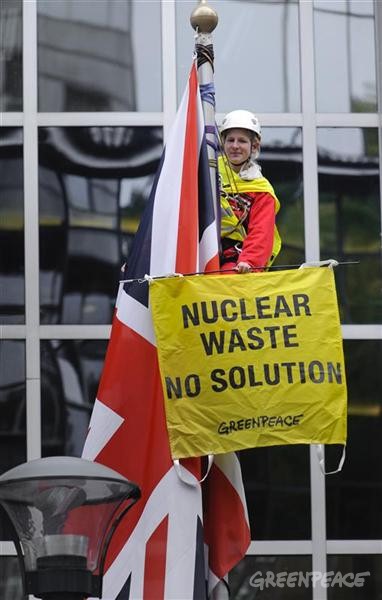Is North Netherlands ready to store nuclear waste?
Is North Netherlands ready to store nuclear waste?
On 7th October Greenpeace drove a few containers full of radioactive material up to the doors of the European Parliament. By doing so the organisation was seeking to draw attention to new European Commission proposals on the storage of radioactive waste. By excluding a large number of types of waste from its proposals, the Commission is attempting to facilitate nuclear waste storage and thereby to encourage the use of nuclear energy. I will of course be keeping a close eye on these developments and exposing them, if they are indeed as negligent as Greenpeace asserts.

It's something you often see: change the definition, and all of a sudden the problem disappears. This is what the Commission is trying to do when it comes to nuclear waste. At a stroke, some forms of low-level nuclear waste have been excluded from consideration, so that the total stock of such waste has been artificially reduced and it will become easier to find places to store the stuff.
The Commission has long supported storage deep underground. The salt plugs in the province of North Netherlands will therefore be regarded as eligible. Greenpeace notes, however, that little is as yet known about the long term effects of such storage. Moreover, there is the example provided by the storage of radioactive material in the Asse mountains in the German region of Lower Saxony, where all sorts of unforeseen effects appeared and where the mine in question must now be cleared out. Measurements have been taken, showing radiation released by radioactive brine. In short, more research into the effects in the long term is certainly no optional extra.
In Brussels, there is a powerful pro-nuclear energy lobby. I regularly receive emails from a range of nuclear energy organisations. So it's not surprising that the Commission has come under the influence of this lobby and is using all sorts of tricks in its attempts to further the cause. As soon as the Commission proposal is available, we will be able to see whether Greenpeace is right. If so, we will be denouncing the move in Brussels, in The Hague and in the provincial councils of the Netherlands' regions which will be affected directly. Otherwise, towns such as Drenthe and Groningen, most certainly under this present government, will before you know it be saddled with Europe's nuclear waste. And we must not let that happen.
- See also:
- Dennis de Jong
